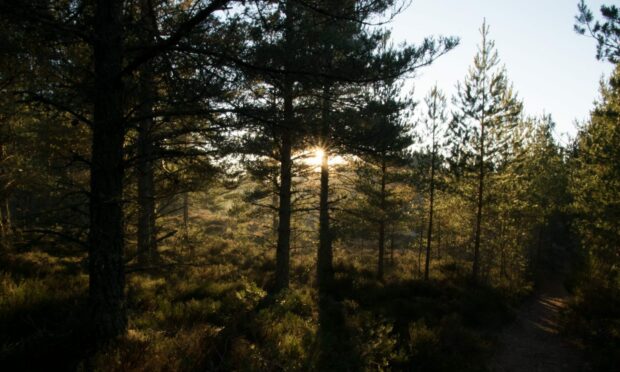New research conducted in the forests near Inverness has shown how different conifer trees cope with drought.
The study, carried out by Stirling University, looks at both monoculture and mixed conifer and their resistance to low water levels.
While mixed-species forests can be more productive and provide a range of social, environmental and economic benefits, they are less resilient to drought.
The research comes as the UK braces for another heatwave, which has already caused environmental damage to green spaces across the country.
The Met Office forecasts that by Friday, August 12, Scotland could see temperatures in the mid-20s with little rain, which can cause trees to overheat.
Using a long-term experimental forest in Ardross, near Inverness, researchers measured the impact of a spring drought in 2012 on monocultures.
One being the Sitka spruce and the other Scots pine – compared to mixtures of the same two species growing together in different proportions.
Scots pine and Sitka spruce are two of the most economically important timber species in the UK, collectively making up 68% of all coniferous forest areas.
‘Deal with the challenges of a changing climate’
Researcher Tom Ovenden of the university’s department of biological and environmental sciences, who led the study, said: “As expected, we found evidence that Scots pine was more resistant to drought than Sitka spruce.
“However, to our surprise, monocultures of both species appeared to be more resilient to spring drought than any of the mixtures of the two species that we considered.
“As we rapidly try to adapt our forests to deal with the challenges of a changing climate, it’s important that decisions on how best to achieve this are based on robust scientific evidence.
“This work is important because it demonstrates that simply adding more tree species to a forest does not automatically increase its resilience.
“Understanding how to effectively increase forest resilience is important, as the ability of forests to sequester carbon, provide habitat for a range of species and to continue to deliver a range of ecosystems services is dependent on them being robust to climate change.”
To find out more about the upcoming heatwave across the Highland, Northern Isles, Moray and Grampian click here.

Conversation